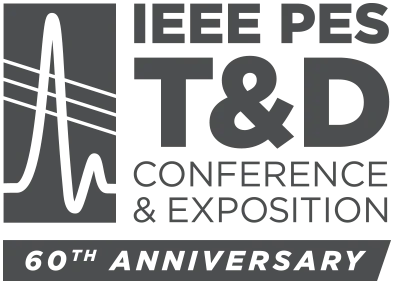Tutorials
Tutorials feature in-depth examinations and presentations covering topics important to power and energy professionals and will take place on Monday, 6 May 2024, only.
Classes are taught by top professionals in the field and you have the ability to earn PDHs and CEUs for your attendance (see below for an explanation of PDHs and CEUs). Full or one-day conference registration plus an additional fee is required in order to attend any of these courses. Click here to register and add on Tutorials!
After the Tutorial
- Educational Credits will be available on the registration web page in the IEEE PES Resource Center for purchase within seven (7) business days.
- All tutorial recordings and corresponding slides will be available for download on the IEEE PES Resource Center within seven (7) business days.
For any questions, please contact LaToya Gourdine at l.gourdine@ieee.org
The 2024 tutorials are:
- Inverter Based Resource Fault Response and Short-Circuit Modeling
- Grounding Design and Analysis for Personnel Safety in Wind and Solar Power Plants
- Stabilizing the Grid of Tomorrow Using Grid-Forming Solutions
- Distribution Reliability and Resilience – Industry Practices, Evaluation, and Improvement Solutions
- Building the Asset Management Practice
- Grid Solutions Accelerated with Latest GIS Technologies
- Proficiency in Optical Groundwire (OPGW) Design and Engineering
- How Grid Energy Storage Meets the Challenges of a Decarbonized Future
- Advanced Techniques for Safeguarding Aging Power Cable Networks through Testing and Diagnostics
Inverter Based Resource Fault Response and Short-Circuit Modeling
DATE: MONDAY 6 May 2024, 8:00 AM – 5:00 PM
Price: Early Bird $295 USD, Regular $395 USD; Student Early Bird $100 USD, Student Regular $150 USD
Instructors: Aboutaleb Haddadi, EPRI, Sukumar Brahma, Clemson University, Mohammad Zadeh, ETAP, Yazid Alkraimeen, Siemens
Description:
Renewables which are interfaced to the grid through power electronics (thus referred to as inverter-based resources – IBRs) have different fault response characteristics compared to synchronous generators (SG). The fault current of a SG is of high amplitude, uncontrolled, pre-dominantly defined by the electrical parameters of the SG and the impedance of short-circuit path; by contrast, the fault current of an IBR typically has a low amplitude and is controlled through fast switching of power electronics devices dependent upon manufacturer specific and often proprietary IBR control schemes. In state-of-the-art fault analysis methods and tools a SG is modeled with a voltage source behind an impedance linear model. This model is not applicable for an IBR, and recent developments have resulted in an industry accepted short-circuit modeling approach which represents IBR with a non-linear voltage controlled current source hat captures the impact of inverter controls on the IBR fault response.
Grounding design and analysis for personnel safety in wind and solar power plants
DATE: MONDAY 6 May 2024, 8:00 AM – 12:00 PM
Price: Early Bird $195 USD, Regular $240 USD; Student Early Bird $50 USD, Student Regular $75 USD
Instructors: Rob Schaerer, POWER Engineers, Inc., David Lewis, EasyPower LLC
Description:
Wind and PV solar power plants present vastly different grounding requirements from that of a traditional power plant or a substation. Much of these challenges have to do with the large area covered by the plants, but also with the varying soil and fault conditions over this area. The IEEE Wind and Solar Plant Collector Design Working Group recently published two new IEEE guides on wind (IEEE Std 2760) and solar (IEEE Std 2778) power plant grounding design and analysis, we look to share recommended approaches with individuals designing these facilities or analyzing their grounding systems. Half of this tutorial will present the key aspects regarding wind power plant grounding, and half will focus on solar power plant grounding. Each half will include a presentation of a sample project and the steps taken in the design and analysis process.
Stabilizing the Grid of Tomorrow using Grid-Forming Solutions
DATE: MONDAY 6 May 2024, 8:00 AM – 5:00 PM
Price: Early Bird $295 USD, Regular $395 USD; Student Early Bird $100 USD, Student Regular $150 USD
Instructors: David Langner, Siemens Energy, Mikael Halonen, Hitachi Energy, Joe Warner, Power Engineers, Jan Paramalingam, Power Engineers, Septimus Boshoff, DNV
Description:
Due to changing utility infrastructure with regards to increased penetration of inverter-based generation and retirement of conventional generation, dynamic shunt compensation solutions are becoming ever more vital for transmission system operation and reliability. The emergence of Voltage Source Converter (VSC), STATCOMs with energy storage, and Synchronous Condensers, have increased potential grid stabilization applications through grid-forming technologies. As utility requirements become more complex, the optimal solution may be a combination of available and future technology. This tutorial presents approaches to planning and functional specification, technology principles with example installations, a comparative evaluation of performance, and an analysis of future trends expected to influence technology development and its place in the market.
Distribution Reliability and Resilience – Industry Practices, Evaluation, and Improvement Solutions
DATE: MONDAY 6 May 2024, 8:00 AM – 5:00 PM
Price: Early Bird $295 USD, Regular $395 USD; Student Early Bird $100 USD, Student Regular $150 USD
Instructors: Dr. Julio Romero Agüero, Quanta Technology, Don Hall, PE, Quanta Technology, Andrija Sadikovic, Quanta Technology, Sal Martino, Duke Energy, John McDaniel, National Grid
Description:
This tutorial will provide a review of leading industry practices, standards and methodologies for evaluation and improvement of reliability and resiliency for modern and future power distribution systems. The objective of the tutorial is to understand industry definitions, practices, experiences, ongoing activities, and solutions for evaluating and improving distribution reliability and resilience.
Building the Asset Management Practice
DATE: MONDAY 6 May 2024, 1:00 PM – 5:00 PM
Price: Early Bird $195 USD, Regular $240 USD; Student Early Bird $50 USD, Student Regular $75 USD
Instructors: Robert Otal, METSCO, a member of BBA, Dawid Lizak, METSCO, a member of BBA, Kurtis Martin-Sturmey, METSCO, a member of BBA
Description:
This course is designed to provide foundational details on how organizations can establish an AM practice, in order to produce functional AM results within their organization. This will include extensive discussions within the following areas: • AM Foundation: Establishing a solid AM foundation leveraging industry standards & best practices (e.g. ISO 55000, GFMAM, IAM AM Model) and key foundational documents (e.g. AM Policy, SAMP & AMPs). • AM Analytics: Introducing objective, repeatable and data-driven decision-making intelligence & analytics that closely align with ISO 55000. • AM Planning: Leveraging the AM Foundation and Intelligence to produce justified capital & maintenance investment plans ensuring that the right actions are undertaken to the right assets at the right time. • AM Improvement: Continually improving the AM practice by introducing reporting processes to manage and track outcomes. Ultimately, this course is designed to provide organizations with direction on how they can deliver justified, actionable, and prudent decisions for transmission and distribution infrastructure, including project prioritization reports, capital & maintenance investment plans, business cases and value frameworks.
Grid Solutions accelerated with latest GIS Technologies
DATE: MONDAY 6 May 2024, 8:00 AM – 12:00 PM
Price: Early Bird $195 USD, Regular $240 USD; Student Early Bird $50 USD, Student Regular $75 USD
Instructors: Peter Grossmann, RCM Technologies, Billy Lao, DILO Company Inc., Ryan Stone, Mitsubishi Electric Power Products, Inc., David Wilson, Siemens Energy, Hermann Koch, drkochconsulting
Description:
This tutorial will concentrate on de-carbonization and latest technologies to accelerate solutions for tomorrow’s electrical grid using Gas-Insulated Substations (GIS) with these topics: Alternative solutions to Sulphur hexafluoride (SF6) for dielectric insulation and switching. The latest CARB regulations, an update on the supply of alternative gases and latest regulations in North America and internationally. Grid resiliency and physical security benefits using GIS in the design and construction of substations to harden against infrastructure damage due to natural and human-caused physical threats. Mobile GIS for temporary use during construction and for service restoration. FERC order 881: Dynamic current ratings for transmission circuits, ambient adjustable ratings for GIS. GIS condition assessment and maintenance strategies such as life extension or replacement. GIS for wind off-shore applications using AC and DC technologies. IEC 61850 & GIS – Designing substations of the future. Digital twin, IEC 61850-9-2 digital instrumentation. Experience exchange, questions and answers will close this future oriented tutorial.
Proficiency in Optical Groundwire (OPGW) Design and Engineering
DATE: MONDAY 6 May 2024, 8:00 AM – 12:00 PM
Price: Early Bird $195 USD, Regular $240 USD; Student Early Bird $50 USD, Student Regular $75 USD
Instructor: Mike Riddle, Incab America LLC
Description:
This tutorial will cover: The three basic design types of OPGW used, the advantages and disadvantages of each, and best practices in design and manufacturing. Accessories used with OPGW plus the associated advantages and disadvantages of the different types used. How to calculate the required fault current capacity for a transmission line and match that with the calculated fault current capacity of a particular OPGW cable design. (Plus, why many traditional ground wires are no longer appropriate for today’s power grid). The characteristics of lightning and how to factor lightning performance into OPGW cable design and selection.
How Grid Energy Storage Meets the Challenges of a Decarbonized Future
DATE: MONDAY 6 May 2024, 1:00 PM – 5:00 PM
Price: Early Bird $195 USD, Regular $240 USD; Student Early Bird $50 USD, Student Regular $75 USD
Instructors: Babu Chalamala, Sandia National Labs, Rick Fioravanti, Quanta Technology, Tu Nguyen, Sandia National Laboratories, Chris Searles, BAE Batteries, Vartanian, PNNL
Description:
This multi-presenter tutorial covers the basics of how electrical energy storage supports decarbonization initiatives across the U.S. To cover this topic, the 4-hour tutorial will be divided into four (4) sections, starting with a review of current technologies targeted for this area, e.g., lithium ion, pumped hydro, flow batteries, and long duration energy storage. Next, market application challenges and valuations will be discussed where the focus will be on the duration needed in a decarbonized scenario and market products that may be required to ensure deployment. In the final two sections, focus will shift to engineering of energy storage systems, code compliance, and interconnection – including electrification technologies. The last section will review system safety and reliability.
Advanced Techniques for Safeguarding Aging Power Cable Networks through Testing and Diagnostics
DATE: MONDAY 6 May 2024, 8:00 AM – 12:00 PM
Price: Early Bird $195 USD, Regular $240 USD; Student Early Bird $50 USD, Student Regular $75 USD
Instructors: Jason Aaron Megger, Megger, Joseph Aguirre Megger, Megger
Description:
There are several test and diagnostic methods available to assess and determine how these stress factors have affected the integrity of a cable. These methods include partial discharge, dielectric loss (Tan Delta), withstand (VLF) and insulation resistance testing. Each test and diagnostic methods provide key information for evaluating cable condition. However, this cannot be done by using one test method alone, proper evaluation is done through the combination of all tests so that a full condition assessment can be achieved. The seminar will include power cable fundamentals, common failure conditions, the importance of a maintenance program, power cable test and diagnostic methods, testing standards, test data analysis and follow up actions to poor test results. Showing how using each test method can increase cable network reliability. Since the majority of power cable systems near the end of their life expectancy, it’s imperative to actively manage the life cycle of cables.







